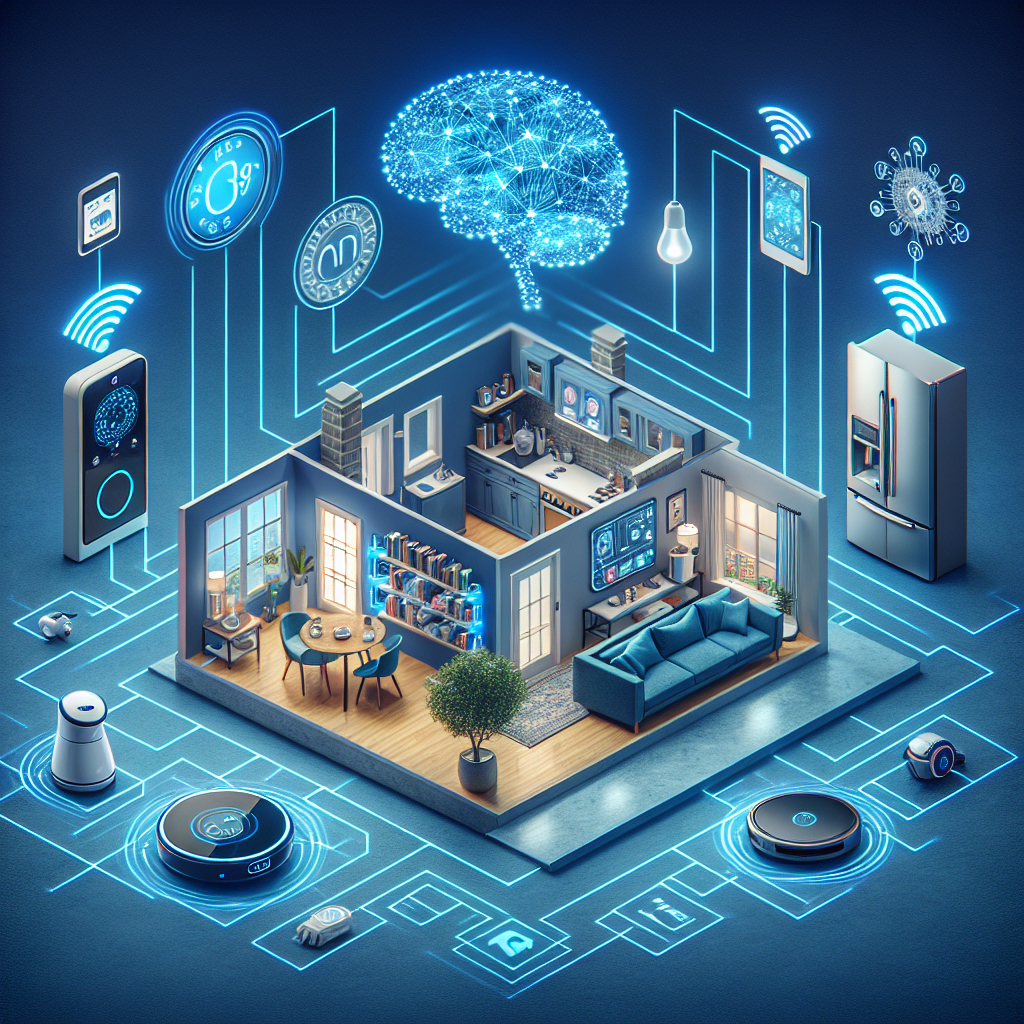The concept of smart homes has dramatically evolved over the past few years, with Artificial Intelligence (AI) playing a pivotal role in enhancing smart home technology. From intelligent thermostats to voice-activated assistants, AI’s integration into smart homes is transforming the way we interact with our living spaces.
What is AI in Smart Home Technology?
Artificial Intelligence (AI) refers to the simulation of human intelligence in machines. When applied to smart home technology, AI systems can make decisions, learn from data, and perform tasks that typically require human intelligence.
How Does AI Work in Smart Homes?
In a smart home, AI systems analyze data from various connected devices to understand user patterns and preferences. Based on this data, AI can automate tasks, control devices, and provide insights about energy consumption and security.
- Data Collection: Sensors and devices collect real-time data on user behavior and environmental conditions.
- Machine Learning: AI algorithms process this data to identify patterns and predict user preferences.
- Automation: AI can automatically adjust devices, such as lighting, thermostats, and security systems, based on the analyzed data.
Benefits of AI in Smart Home Technology
The integration of AI into smart homes offers numerous advantages:
Convenience
AI-powered virtual assistants, like Amazon’s Alexa and Google Assistant, allow users to control home devices through voice commands, making everyday tasks more convenient and hands-free.
Energy Efficiency
AI can optimize energy consumption by learning user habits and adjusting heating or cooling systems accordingly. Smart thermostats, such as the Nest Learning Thermostat, can reduce energy bills and minimize environmental impact.
Enhanced Security
AI enhances security by monitoring home environments through smart cameras, doorbells, and motion detectors. These systems can send alerts and even recognize faces, offering personalized security measures.
Popular AI-Enhanced Smart Home Devices
Several devices exemplify how AI is enhancing smart home technology:
Smart Thermostats
Devices like the Nest Learning Thermostat use AI to learn your schedule and preferences, adapting the temperature accordingly to save energy and increase comfort.
Smart Lighting
AI-driven lighting systems, such as Philips Hue, can adjust brightness and color based on time of day or user activity, creating a more dynamic and responsive lighting environment.
AI Security Systems
Smart security systems, like Ring and Arlo, utilize AI for advanced motion detection and facial recognition, providing enhanced home security and real-time alerts.
The Future of AI in Smart Homes
The future holds exciting prospects for AI in smart homes. Advances in machine learning and natural language processing will enable even more seamless interactions and predictive capabilities. We can anticipate even greater integration of AI across all facets of home automation, from kitchen appliances to personalized healthcare within the home environment.
Additionally, 5G technology will significantly enhance the capabilities of AI in smart homes by providing faster and more reliable connectivity for all connected devices.
Challenges and Considerations
Despite the numerous benefits, there are some challenges in integrating AI into smart homes:
Privacy Concerns
AI systems collect vast amounts of data, raising concerns about privacy and data security. It’s essential to have robust security measures and transparent data usage policies.
Compatibility Issues
Not all smart devices are compatible with each other. Ensuring seamless integration between different brands and technologies remains a challenge.
In conclusion, AI is significantly enhancing smart home technology by offering unprecedented levels of convenience, efficiency, and security. As technology continues to evolve, we can expect AI to play an even more central role in creating intelligent and responsive living environments.

